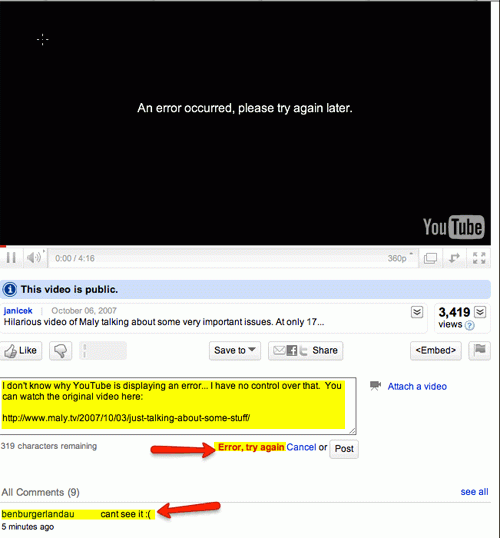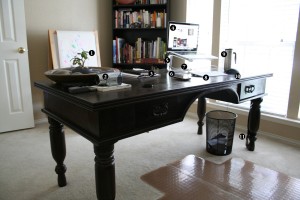 We’re sitting there on the coffee shop’s patio and I ask my friend why he thinks that I abhor and resent my former employer so much. I interrupt before he starts in and instead ask, “what did I do wrong?”
We’re sitting there on the coffee shop’s patio and I ask my friend why he thinks that I abhor and resent my former employer so much. I interrupt before he starts in and instead ask, “what did I do wrong?”
Without overanalyzing, sugar-coating or trying to appeal to any kind of emotion that he thought I might be having at the time, he hit the nail on the head. And it wasn’t as painful as I thought it was going to be. He said, “At some point, conscious of it or not at the time, you realized that there was a game being played. And this game’s rules far from aligned with your core values. And, again, conscious of it or not, you decided to play in that game for whatever reason or reasons. So, it sounds to me that you went wrong when you didn’t get out soon enough. You played in the game with the expectation that you were going to win, or that things would just wind up being okay for you.”
And after he said that, I knew, almost to the exact hour a year and a half ago when that game began. And that’s when I should have quit that job. That last sentence was painful and hard as hell to write because I’m the farthest thing from a quitter, but that’s the way “the game” is played these days.
I wish my dad were still here so we could talk for hours about integrity and loyalty. He raised me to be a hard worker, to be loyal, faithful and to provide for my family. Assuming I live to be 10 years older than my dad was when he died, I’ll probably still have never worked as hard as he did. In my mind, there’s still a part of me that thinks I would have to explain to my dad how the working world is “these days,” but then I have to remember that he was subjected to demotions laid out by self-entitled middle management, the concept of loyalty being squashed and eventually being downsized after 30+ years or undying faithfulness. It wasn’t a game to my dad – it was the only way he’d known how to live and to provide for his family for his entire adult life. The job world had become a game after my dad reached the age of 66 and, although it wasn’t his plan, he was able to retire and be comfortably done, albeit sick at heart after the game ended.
Last week Elise and I were in our lawyer’s very ornate conference room complete with a library, expensive paintings and dark, oak paneled walls. It’s a rich and intimidating room. Sitting in this conference room reminded me of the few occasions where I found myself sitting outside the principal’s office when I was in the 7th grade. Whatever was about to transpire in the next hour would be temporarily life changing.
I would have never yelled across the table, “This is fucking bullshit!” to my junior high principal. But I did to my lawyer. That’s when, in my mind, the game had changed. That’s when I resolved to the fact that I would be a free agent. I wasn’t mad at our lawyer. I was mad at the reason why my wife and I were sitting in a lawyer’s conference room in the first place. I was mad because I had decided to fight fire with fire in a game that was based exclusively on corporate lack of loyalty. I was mad because after having only worked for this employer for a little over 3 years, I was having to subject my wife and myself to so much angst and unneeded stress. You see, the first couple years at this job were great for the company and me, however those last 15 months tainted the entire job for me. With the help of Elise, I’ve maintained my faith and some semblance of a positive attitude, but I left the lawyer’s office saying, “this just makes me sick at heart. There is no loyalty.”
Over the past six months I’ve read a lot of books, more than I can remember having read in a over a decade. Last night I picked up an unread book that’s been sitting on the bookshelf since 1997. My parents bought this book for me when I was in college. A book titled “Die Broke” wasn’t going to do this college student much good when my job at the Olive Garden afforded me barely enough money for rent and booze.
I try to put more fiction and classics between any self-help, financial or any other kind of non-fiction books as I’ve grown accustomed to my reading in the evenings as an opportunity for my mind to interpret, wander and paint pretty pictures. Last night I hesitantly cracked open to page 1 of the never-opened book and quickly found myself excitedly turning each page until I’d devoured the first 3 chapters when I finally needed (not wanted) to put it down so I could go to sleep at 1 a.m.
I highlighted these paragraphs from Chapter 1:
When you were growing up you were always told that if you got a good education you’d get a good job; if you did what was asked of you in that job you’d be secure; and if you did your job well you’d get raises and promotions. Under such circumstances it became easy for your job to represent yourself; somehow what you did for a living reflected on your value as a human being and the values you held. “Job” became an old-fashioned, blue-collar kind of word, a term used by your grandmother, which you replaced with more abstract terms like “career” and “work.”
This made a lot of sense at a time when government was subsidizing higher education through low-interest loans and when corporations were expanding the ranks of middle management. As a nation, our attitudes toward work had shifted from it being for God’s glory or our own individual comfort to it being a way to judge our status in society or to achieve personal growth. With such a work ethic in place, organizational loyalty and identification with our jobs made perfect sense.
But in a new world, a world in which there’s no such thing as corporate loyalty, a world where young people graduating from good colleges can land positions only as temps, a world where raises are rare and barely keep pace with the cost of living, viewing yourself and your job as one is dangerous psychologically and financially.
The answer is to quit today: mentally separate yourself from your employer and realize that you’re on your own. Abandon any remaining tinges of loyalty to your employer (who long ago abandoned any sense of obligation to you) and instead think of your job and yourself the same way free-agent athletes do: They retain their integrity by doing their best and being part of the team, but they’re also focused on getting the best financial deal they can. You should do the same. Once you’ve quit in your head, being fired is no longer a real threat: You’re already a free agent on the lookout for your next opportunity.
I also think most of us are making far too many demands on our jobs. It’s rare today for a job to be secure and rewarding both emotionally and financially. I suggest you instead adopt a mercantile approach: focus on what you’re doing as a job — that word your grandmother used — not necessarily a career, and view your job as primarily an income-generating device; any other benefits are purely secondary. Having a mercantile approach doesn’t mean obsessing over money. It simply means using your job to generate the money you need to pursue your personal goals, rather than looking to the job itself to fulfill those goals. A career is simply a series of such jobs viewed from above and placed in some kind of context. And life’s work need not be what is done on the job.
That, for me, is a tough pill to swallow, but it’s true. I’ve always made it known to friends and family that it irks me anytime someone immediately asks, upon meeting me for the first time, “so, what do you do for a living?” Although they might be pretty close, my personal values and goals aren’t the exact same as those of a “job” or an employer, therefore I don’t allow a job to define who I am as a person, and that’s generally how I interpret the “what do you do for a living?” question, although the person asking may just be genuinely interested in how I exchange my time for money.
As far as loyalty goes, I’ve been burned. It’s like an emotionally brutal breakup or divorce where I’d swear that I’ll never love again. From what I’ve read in the book thus far, I’ve seen in words what had only been underdeveloped notions in the far reaches of my psyche, notions that I’d subconsciously hoped I’d never have to allow to surface and massage. But it makes sense — in 1997 and today.















